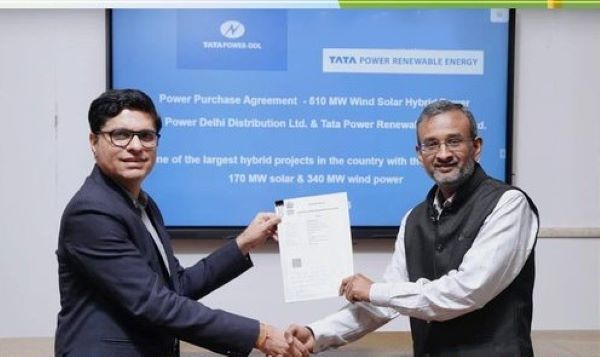
Team News Riveting
Mumbai, March 10
Tata Power Renewable Energy Limited (TPREL), a subsidiary of Tata Power and one of the major renewable energy players in the country, signed a Power Purchase Agreement (PPA) with Tata Power Delhi Distribution Limited (Tata Power-DDL), for 510 MW hybrid project.
The project will save on an average of 1540 MUs of CO 2 emissions annually for Tata Power- DDL, a joint venture between Tata Power and Govt. of Delhi, that supplies electricity to a populace of over 7 million in North Delhi.
The PPA has the capacity bifurcation of 170 MW solar and 340 MW wind power. Located in Karnataka, it is one of the largest hybrid projects in the country and will be commissioned within 24 months from the PPA execution date.
Speaking on the occasion, Ashish Khanna, CEO, Tata Power Renewable Energy Limited, said, “Tata Power Renewable has signed one of the largest PPAs in the country for a 510 MW hybrid project, via competitive bidding, showcasing our future readiness and expertise in project execution skills. This partnership is significant in our quest to continue our journey as one of the torchbearers of the green and clean energy transition.”
TPREL won this project through a competitive bidding process, followed by the release of LOA by Tata Power-DDL. This win is an extension of the earlier LOA of 255 MW received in December 2022.
Ganesh Srinivasan, CEO, Tata Power Delhi Distribution Limited, added, “Aligned with the nation’s renewable energy mission, we are pleased to join hands with Tata Power Renewable Energy Limited for our biggest hybrid energy tie-up. We are confident that this association will strengthen our commitment towards significantly enhancing the portion of sustainable energy in the overall supply mix.”
With this win, the total renewables capacity of TPREL reaches 6,303 MW with an installed capacity of 3,909 MW (Solar – 2,981 MW & Wind – 928 MW) and 2,394 MW under various stages of implementation.



